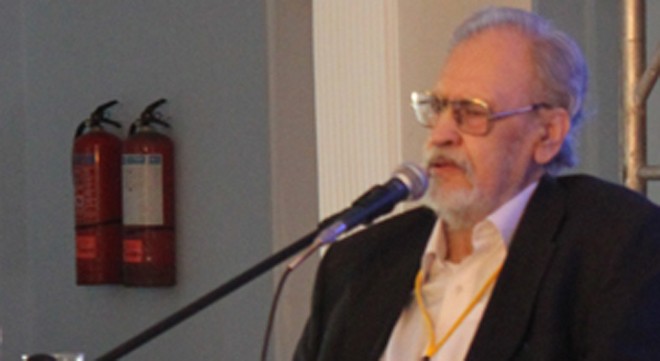
Udas Nasleyn a novel that kept an upward trajectory in popularity

Classics like Don Quixote in Spanish, Master and Margarita in Russian, The Count of Monte Cristo in French, The Unbearable Lightness of Being in Czech, Darkness at Noon in German, are timeless novels that are read with great enthusiasm not only in their original language but also the various translations.
Udas Nasleyn, undoubtedly, has gained the same status in Urdu. Its English translation The Weary Generations has also established its presence. Because of its subject in the bloody background of war, conflict and partition of the subcontinent, the novel has emotionally and figuratively influenced almost four generations of readers. Certainly the title is apt; the political chaos and deterioration this country has witnessed since its creation has made its people "weary". The novel’s reader immediately relates to the title, but strangely enough this relevance worries its writer, Abdullah Hussein.
To him the book has become a bone in his throat. "This makes people think that I have written only one novel," he says. He had heard somewhere and solemnly believed that "a novelist is as good as his second novel."
Udas Nasleyn kept an upward trajectory in popularity while Abdullah Hussein took over a decade to test if he could write another piece of literature. Then came Baaggh, his second novel and the one he considers the best among his other books including Naadar Log, Raat, Qaid, and Nadi.
His admiration for Baaggh is such that when the Lahore Literary Festival held a special session to acknowledge his first novel and titled it ‘Udas Nasleyn and Beyond’, Abdullah Hussein thought the name of the session was a typo, and could have been ‘Udas Nasleyn and Baaggh’.
The LLF effort, however, seemed a half-hearted one. The organisers had arranged the smallest available space to discuss the much acclaimed novel. The venue, temporarily named Hall-4, had less than 100 seats to accommodate attendees. The crowd lined up outside the hall, willing quite literally to gatecrash. A member of the audience loudly complained, which almost turned into a heated argument with the session’s host, rightly pointing out that the book’s fans were eager to listen to its writer, and that the management should have been more considerate. The host pleaded he had no authority to make a decision in this regard. Abdullah Hussein quickly urged the organisers to let more people in.
The host, Asif Farrukhi, regarded as one of the most well-read and proficient interviewers, regrettably opened up the session with ludicrous questions. The questions were structured to hint that the audience was not familiar with the book or the author. Abdullah Hussein, however, remained charming, witty and candid in his short and crisp answers.
Like every other interview that he has given so far, Abdullah Hussein had to repeat that Udas Nasleyn was written out of sheer boredom while working as a chemist at a cement factory. In his free time after duty hours, he read and wrote to keep himself engaged. He once again openly declared that he’s an accidental writer.
Also read: Fifty shades of disappointment
Abdullah Hussein’s humility showed through when he said that he had no command over the garrulous, old styled Urdu language and that he invented his own simple syntax, keeping the sentences short and adding words from other languages like Pashtu and Punjabi. He later had to face unnecessary criticism of "ruining the language", but this touch made the book easily readable and popular among the masses. Born Muhammad Khan, he was urged by his publisher to adopt a pen name to avoid any confusion with his namesake, Colonel Muhammad Khan. He ended up adopting a colleague’s name.
The growing popularity of Udas Nasleyn won Abdullah Hussein the Adamjee Award. He shared an interesting political anecdote about the award with the audience, saying that after the ceremony, then-President Ayub Khan requested that Abdullah Hussein should write "Qaumi Kitabein".
The audience enjoyed his political commentary about military governments. Udas Nasleyn was followed by its ‘sequential -- if you will’ novel titled Nadaar Log. Justice and its absence are the undercurrent themes of both the novels. Abdullah Hussein intends to publish another novel, following Nadaar Log. He complained that the reader has generally gone sluggish. An author not only has to write a book, he observed, but has to make a reader understand his writing as well. The same, he said, goes for critics.
Just short of an hour long session ended with only a few questions from the audience who seemed eager to talk and learn more about the book.